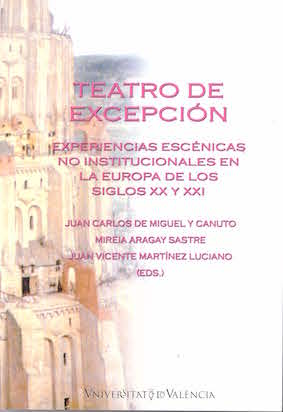Theatre and Anti-psychiatry in Italy: The case of Marco Cavallo (1973)
DOI:
https://doi.org/10.7203/qf-elit.v19i0.5200 Abstract
Abstract
On the 25th of February 1973 a committee composed of doctors and their patients knocked down part of the walls of the San Giovanni asylum in Trieste and went out into the streets to march through the city behind a huge blue horse made of wood and papier maché. It was the culminating moment of an intensive two-month theatre workshop. The two main promoters of all this were G. Scabia, a well-known man of the theatre, and F. Basaglia, the director of the hospital. He was at the heart of the notorious and polemical Law 180 of 1978 which abolished mental asylums in Italy. The mythical event of “Marco the Horse” was the tip of the iceberg of a full programme of rehumanization of the mentally ill. The present article describes the phenomenon, analyses it and weighs up its impact as a theatrical event that gave visibility to a serious social problem and helped it to be better understood.
Keywords: Marco Cavallo; XX Century; Social theatre; Anti-psychiatry; Giuliano Scabia; Franco Basaglia.
 Downloads
Downloads
Downloads
Published
How to Cite
-
Abstract619
-
PDF (Español)400
Issue
Section
License
 Este obra está bajo una licencia de Creative Commons Reconocimiento-NoComercial-SinObraDerivada 4.0 Internacional.
Este obra está bajo una licencia de Creative Commons Reconocimiento-NoComercial-SinObraDerivada 4.0 Internacional.
Authors who publish with this journal agree to the following terms:
- Authors retain copyright and grant the journal right of first publication with the work simultaneously licensed under a Creative Commons Attribution License that allows others to share the work with an acknowledgement of the work's authorship and initial publication in this journal.
- Authors are able to enter into separate, additional contractual arrangements for the non-exclusive distribution of the journal's published version of the work (e.g., post it to an institutional repository or publish it in a book), with an acknowledgement of its initial publication in this journal.
- Authors are permitted and encouraged to post their work online (e.g., in institutional repositories or on their website) prior to and during the submission process, as it can lead to productive exchanges, as well as earlier and greater citation of published work (See The Effect of Open Access).




